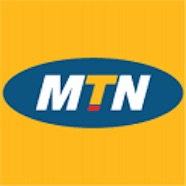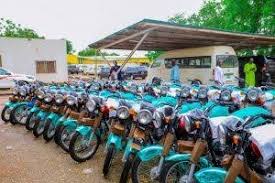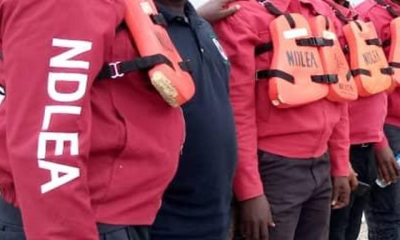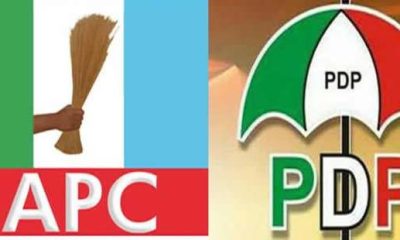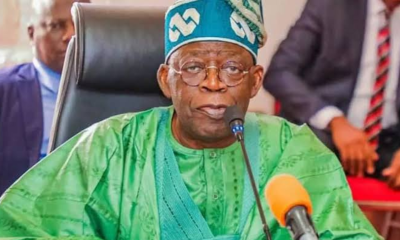Environment
We Used Indigenous Capacity to Contain Nembe Well Leak- Firm

FROM TAYESE MIKE, Yenagoa
Kenyon International West Africa Limited says it deployed 100 per cent local manpower and expertise to contain the oil and gas leak from a wellhead blowout at Oil Mining Lease (OML) 29 operated by Aiteo Eastern Exploration in Nembe, Bayelsa.
The Santa Babra South Well 1, which blew out on November 5, 2021 discharged thousands of barrels of Bonny Light crude blend into the Santa Babra River for 32 days, out of which some 18,600 barrels of emulsified crude and water sediments were recovered.
Aiteo had approached Boots and Coots, a subsidiary of United States Halliburton to plug the well but the firm was unable to mobilise its expatriate workforce due to the COVID-19 restrictions and hiccups which compelled the operator to look inwards.
Mr Victor Ekpenyong, Chief Executive of the indigenous oil services firm said the feat was attributable to the enactment and implementation of the Nigerian Content Act 2010.
Ekpenyong, a member of International Well Control Forum, appealed to oil firms operating in the company to give opportunities to Nigerian companies as they have developed competencies to match their foreign counterparts.
Ekpenyong noted that the Nigerian Content Development and Monitoring Board (NCDMB) has helped in building the capacity of Nigerian companies by facilitating collaboration between local players and Original Equipment Manufacturers (OEMs).
He explained that prior to the Nigerian Content Act 2021, the OEMs dominated the scene and enjoyed monopoly on oil and gas projects that Nigerians had the potential to execute but were marred by challenges.
Ekpenyong explained that the NCDMB has been assisting Nigerian firms overcome the challenges they faced in the industry and listed the $500 million Nigerian Content Intervention Fund as a boost to local capacity in oil and gas sector.
“Many companies are having difficulties and challenging experiences in the industry through a lot of challenges. Some companies may stay for a long time without any job. Also, the issue of marketing support in the sector is equally a cause for concern because it is very expensive amidst limited capital environment to engage in marketing communications.
“Equally, COVID19 affected a lot of businesses, and some businesses are not able to meet up with orders. On the other hand, some companies have been showcasing their services at Nigerian oil and gas conferences without getting the desired patronage,” Ekpenyong said.
On the over 10 years of operating under the Nigerian Content Act 2010, Ekpenyong noted that the law enabled Nigerians in the oil and gas space to be in business as it reserves categories of jobs for them.
“Prior to the implementation, the operations we do now would not have been possible for an indigenous company. It would simply be the exclusive reserve of the OEMs.
“These days, OEMs partner with indigenous companies which enables these companies to develop their capacity.
“It also has made some Nigerians in the diaspora move to Nigeria knowing full well that their expertise would be well utilised. Without a doubt, the implementation of this act has been a vehicle for talent development in the country.
“We are very excited we have been given the privilege to establish businesses. I would say it is a win-win situation. There are some jobs we still partner with OEMs to deliver. It has been an inclusive venture where we work together,” He said.
Ekpenyong, an alumnus of Federal University Owerri, noted that there was available Nigerian technical expertise drilling services which encompasses piling, cold cutting and supply and installation of well head casing adding that patronising Nigerian firms creates more jobs and checks capital flight.
Environment
Prolonged Public Holidays Come with Negative Economic Effects on Citizens – Anambra Residents

Anambra residents have slammed the additional day approved by the Federal Government for the Muslim faithful to celebrate the 2024 Eid-Ei-Fitr, saying this will have negative effects on the economy.
The Federal government had early declared April 9 and 10 as Muslim-Ummah for the successful completion of a month’s spiritual rejuvenation.
Reports says that residents of Anambra capital city believe that the additional day which they did not plan for will result in economic hardship to the citizenry.
Most respondents believe that people had planned to resume their economic activities instead of wasting their time staying at home doing nothing..
Former Chairman, Awka Chamber of Commerce, Chief Felly Akosa, described the additional day to the two days approved earlier as “unfair to the economy of the country as people were unprepared for the additional day.
Akosa said that although it is right for the Muslim faithful to celebrate their holiday after a month-long fasting, the process needs to be carefully planned for in place of the additional rest day which could inhibit business activities.
Chief Damian Okeke-Ogene, National Vice President of Igbo Apex Social Cultural body, Ohanaeze Ndigbo, said the policy would cause huge economic waste as businesses are put on hold,
He advised that, in future, a proper and well planned programme needs to be in place before declaring a public holiday for any celebration that will be national.
“Our economy and other sectors are not very healthy,” and it would, therefore be appropriate to plan well to avoid declarations that will hamper the citizens’ welfare.
Mazi Christian Beluchukwu, a business man in Awka, described the extension of the Eid-El-Fitr public holiday to Thursday, April 11, as an added hardship for the citizenry.
Beluchukwu said that any public holiday for three days, April 9 to 11, to celebrate any feast in the country is an economic loss to the nation.
He said that it was best to stick to the two-day national public holidays as this gives room for the people to plan their activities very well.
He stated that his wife went to a public hospital on Tuesday and was unattended to because there was no doctor on seat to provide medical attention.
“She resorted to visiting a private hospital which cost extra money which the public hospital is expected to handle at a reasonable cost. (NAN)
Environment
World Bank Fund: Corporation Rehabilitates Treatment Plant, Reticulation in Jos South

The Jos Water Services Corporation (JWSC) has said that the World Bank fund received would be used to boost water supply to Bukuru and environs in Jos South Local Government Area.
Mr Apollos Samchi, the Managing Director of the corporation, said that N1.7 billion would be expended on the rehabilitation of water treatment plant, over head steel tank and laying of pipes to homes of consumers.
Samchi, who disclosed this on Friday in Jos, during a two-day capacity building workshop, said that the projects were expected to be completed in four months.
Reports says that the workshop organised for contractors has at its theme: “Implementation of Environmental and Social Management Plans for Projects in Jos South.
The MD said that the projects would ensure steady provision of potable water to residents in Gyel and Kurgiya in Jos South Local Government Area.
He said the treatment plant when rehabilitated would pump out 5,000 cubic litres of water daily.
The MD further stated that the reticulation exercise would cover residents who weren’t initially connected to public water supply in the area.
Samchi said that the essence of the workshop was to ensure that the contractors were trained to develop adequate measures and controls to minimise and mitigate potential environmental and social risks that could adversely affect the project implementation.
He called on all the contractors handling the projects to ensure that they adhered to the environmental and safety standards and deliver within the specified timeframe.
In his remarks, Mr Jonathan Malann, the Plateau Project Coordinator, Sustainable Urban, Rural Water Supply, Sanitation and Hygiene programme (SURWASH), also advised contractors to adhere to the environmental and safety standards as provided by the World Bank.
The Federal Government had received $700m financing from the World Bank to ensure that all its people have access to sustainable and safely managed WASH services.
The seven participating states are Plateau, Delta, Ekiti, Gombe, Imo, Katsina, and Kaduna.(NAN)
Environment
Erosion Control Project: Gombe SEC Approves N389m Compensation for Residents

The Gombe State Executive Council (SEC) has approved payment of N389 million as compensation for residents that would be affected by the gully erosion control project at Federal College of Education (FCE) Technical and its surrounding communities.
The Commissioner for Finance, Gombe State, Malam Mohammed Magaji, stated this at the end of the SEC meeting on Friday in Gombe.
Magaji said the payment, which would commence immediately, would be for individuals and organisations along the gully erosion site.
He said almost 1000 persons were expected to benefit from the gesture.
According to him, the compensation is part of the requirements of the World Bank, which specifies that such payments be made to property owners.
Magaji said the payment would also be made to ensure seamless resettlement of affected persons.
“The beneficiaries are in hundreds, almost a 1,000 people; there is compensation for houses, and also for business premises.
“There is also stipends for the elderly living around that area so that they are able to have good livelihood,” he said.
The commissioner for Education, Hajiya Aishatu Maigari, also said the SEC approved upgrade of the five mega senior secondary schools in the state to sustain improvement in the education sector.
Maigari said the upgrade would be carried out based on the needs of each of the schools.
She stated that infrastructure in some of the schools were already being upgraded to global standards.
“We have seen construction of toilets, installation of solar-powered light, construction of roads, school clinics, boreholes and many more,” she said.
The News Agency of Nigeria (NAN) reports that the state government had on Nov. 23 signed a N12 billion contract with Triacta Nigeria Ltd. for a 21-kilometre gully erosion control work in six communities within Gombe metropolis.
The project is under ACRESAL project, a World Bank-assisted project to address the challenges of land degradation and climate change in northern Nigeria. (NAN)




